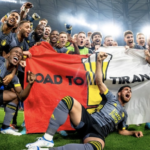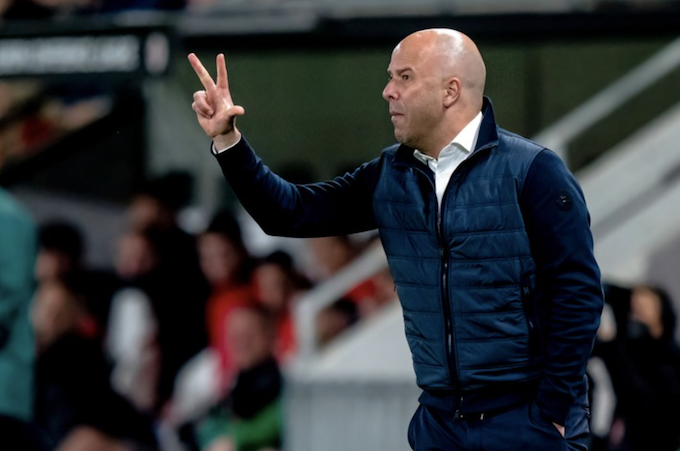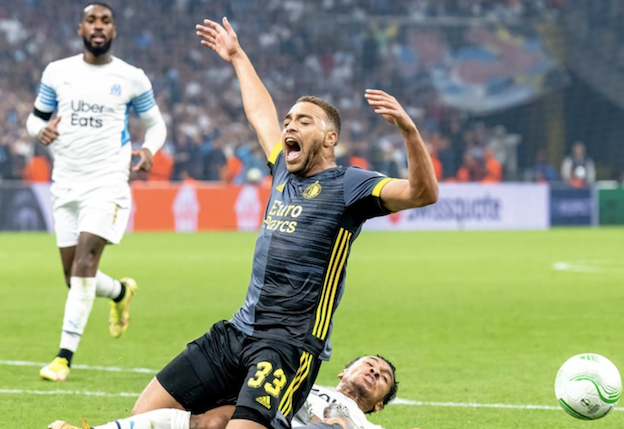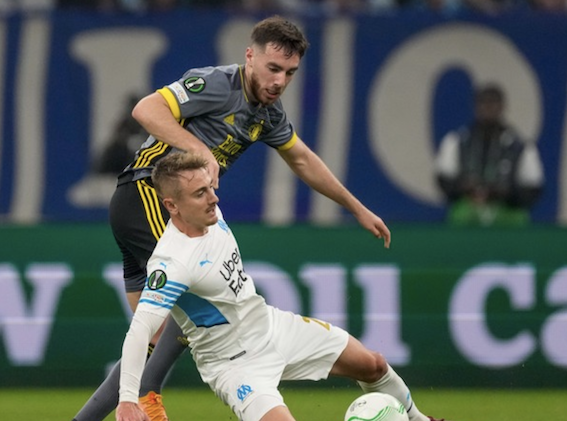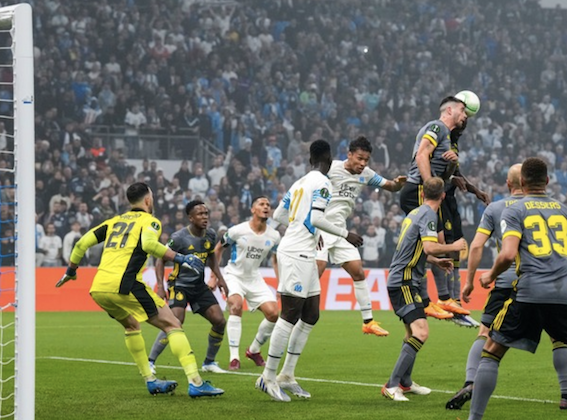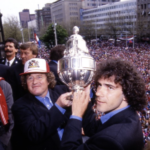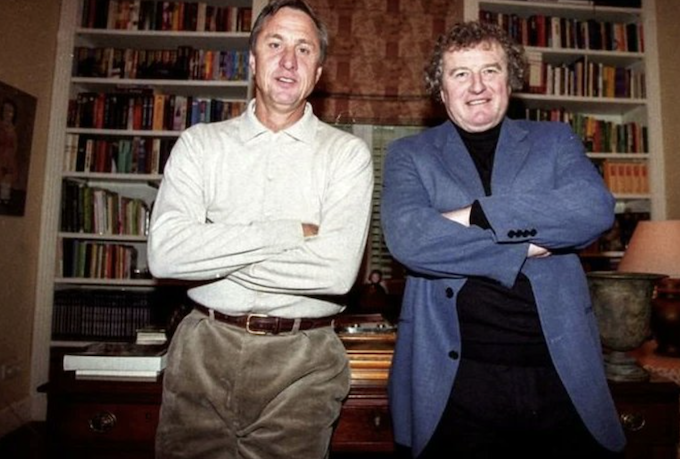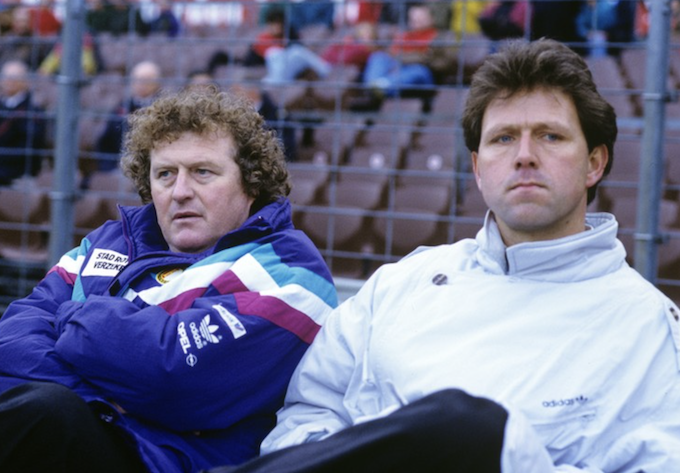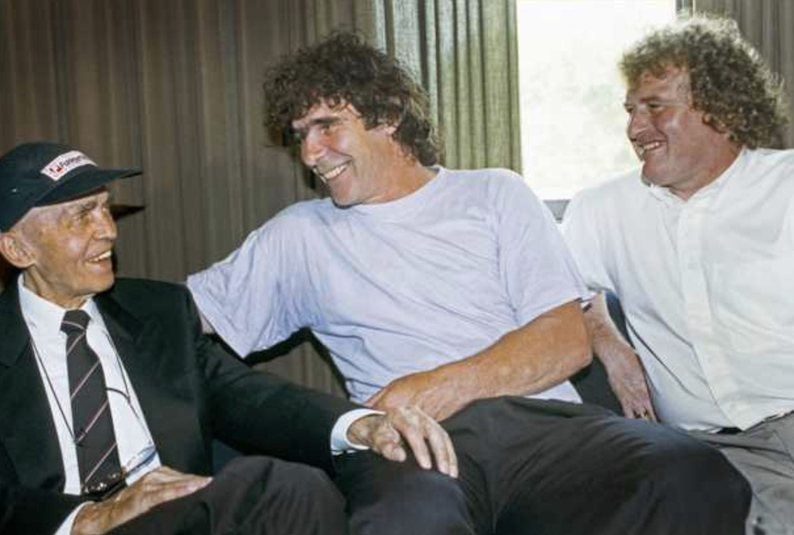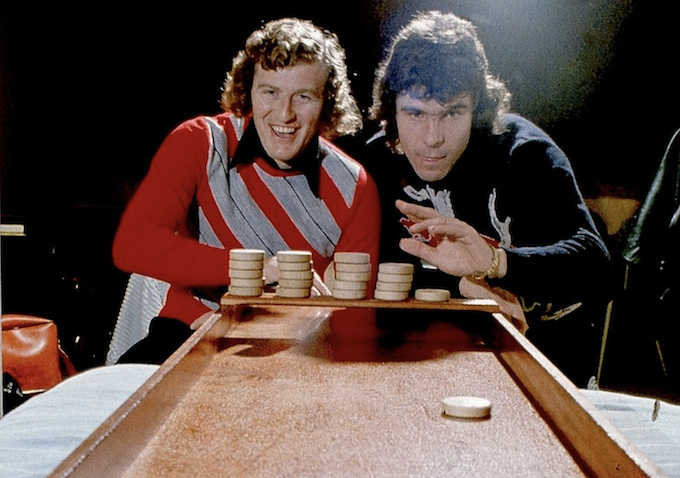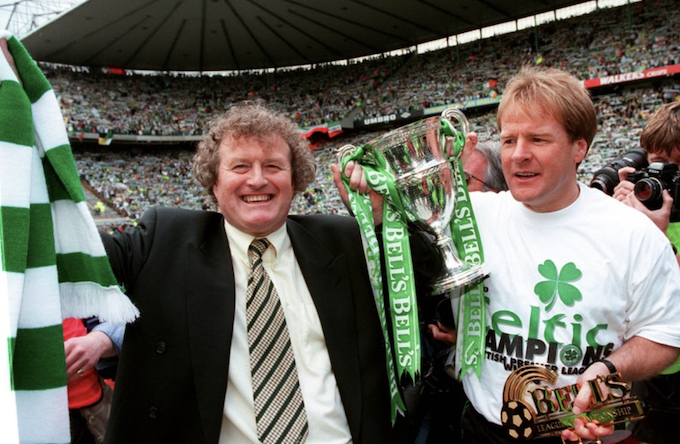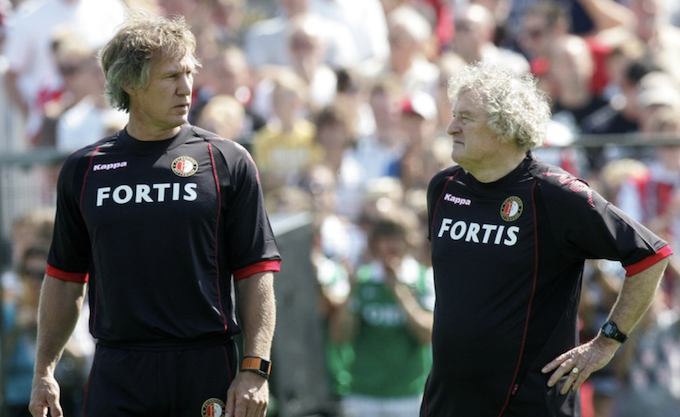Who could have guessed. After Gio van Bronckhorst’s rein at the club and the string of trophies won, Feyenoord seemed to drift back to a dreary sub top role. Jaap Stam started in a chaotic situation: no money, no technical management, no academy and half a squad. He decided to move on.
Dick Advocaat was called in to mend the club and he did, with typical Advocaat style, compact defensive football. Not winning any prizes but not getting egg on face either.
Feyenoord needed their own renaissance man. Their own Pep, or Klopp or Gasperini. Arne Slot was the man.
And after having won Holland’s first trophy in 1970 and winning the last one for Holland in 2002, Feyenoord is now close to showing Ajax and Oranje how it is done.
Qualifiying: Drita – Feyenoord 0-0
Feyenoord started their campaign in Kosovo in July (!) 2021. The official debut of the former AZ coach, with Leroy Fer as central defender and Bannis as the striker. Feyenoord lacked creativity and Bannis missed the only big chance they got. Orkun Kökçu: “I had the ball a lot but didn’t make the right choices. We simply weren’t good enough, in playing through them. We lack creativity. We are not good enough.”
Qualifying: Feyenoord – Drita – 3-2
Arne Slot has a new name in the squad: Alireza Jahanbaksh is the successor to Berghuis, the creative playmaker who starts on the right of the pitch. Fer is again the central defender who makes mistake after mistake. Guus Til scores the 1-0 but due to Fer’s errors, it’s soon 1-2 for Drita. Late in the game, it’s cult hero and loanee Guus Til who would shoot Feyenoord past Drita: 3-2. A new fan fave is born. Slot: “I expected us to deal with the opponent in an easier way. The positive side of this is the team’s mentality. They fought back from a difficult position, I have to give them that.”
Qualifying: Luzern – Feyenoord. 0-3
Guus Til is important again, with two goals in the first half. Sinistera scores Feyenoord’s third. Slot: “We looked fresh and positive. We had more depth in our game and we made less errors.” The key news was the addition of Gernot Trauner to the team. The debutant central defender immediately impressed. Kökçu started the campaign with criticism but is growing into his holding defender role.
Qualifying: Feyenoord – Luzern 3-0
New addition Fredrik Aursnes watches from the stands as Jahanbaksh gives off his name card with two goals. The match is unique for Antoni Milambo, who makes his debut as 16 year old and has relieved Wijnaldum as the youngest Feyenoord player ever. Slot: “Without the ball, we were still a bit nervous and stressed, but with the ball, we played fantastic.”
Qualifying: Feyenoord – Elsborg 5-0
Feyenoord is hungry. Jahanbaksh and Sinistera with early goals and in total a hattrick for the Columbian while Linssen tops it off with his usual goal. The Swedish media is impressed and speak of the destruction of Elsborg. Jahanbaksh: “We decided to push on as they play on an artificial pitch. We wanted to have some daylight between us.”
Qualifying: Elsborg – Feyenoord 3-1
Without Senesi and Bijlow, it is not the same for Feyenoord. The trail 2-0 against the Swedes but once Til scores (again) for the Red and White, the game is played. Slot: “I am standing here with a smile, but during the match I was not smiling. The difference between winning and losing is small. And the players will have noticed this. The good thing is, we are in the group. The rest is all learning.”
Group: Maccabi Haifa – Feyenoord 0-0
The first match in the group stage is a disappointing one. Bryan Linssen gets three major chances and misses them all. Ausners makes his debut. Cyriel Dessers, another debutant, makes a cameo but can’t convince the Dutch criticasters. “They might think I am the Dessers of Heracles, but I am a better version now. I will show them, I can’t wait.”
Group: Feyenoord – Slavia Prague
Feyenoord plays Prague drunk in the first half. Kökçu and Linssen score the 2-0 but then it’s over for Feyenoord. Instead of going to 3 or even 4-0, they allow Prague back into the game. The Slavia coach: “This must have felt like a training match for Feyenoord. They did what they wanted and we couldn’t stop them.” Slot is less enthusiastic: “We played with flair in the first half, but in the second half it seems the battery was empty. We need to work hard on that.”
Group: Feyenoord – Union Berlin 3-1
Feyenoord is warned for the team from Berlin but scores an early goal after an explosive start. Bryan Linssen uses his body to force the second goal and is questioned about the foul after the game. “Did you think it was a foul? Aren’t you Dutch??”. Feyenoord wins 3-1 and Linssen praises the mentality in the team: “We want to fight for one another, the noses are all pointing in the right direction. It’s early days and we don’t have anything yet, but we are in really good shape.”
Group: Union Berlin – Feyenoord 1-2
Sinistera is again on the score sheet early in the game but Berlin gets themselves back into it. Feyenoord is leading the group and when Dessers benefits from a slip from a defender, Feyenoord will end the evening as group leaders even more firmly. The main topic of the night, apart from Dessers, is new midfielder Aursners who is growing into one of Feyenoord’s key players.
Group: Slavia Prague – Feyenoord
Prague hosts the Rotterdam club with the knives sharpened. Feyenoord needs 1 point to progress but Marciano’s mistake means Prague leads early. Dessers comes on for a sick Linssen and when Til is sent off in the second half it appears to go pear shaped for the Stadium club. Prague scored the 2-1 but it’s another late Dessers goal that puts Feyenoord through to the knock out stages. Slot: “The ultimate strength of this team is their will power”.
Group: Feyenoord – Maccabi Haifa 2 – 1
Dessers and Reiss Nelson get the nod for the first time and both pay their coach back with a goal. Remarkably, Feyenoord ends the match with 8 self developed players in the line up. Quite a feat. Slot: “This is a big feather in the cap of the Academy. This club is very much alive!”.
First Knock-Out: Partizan Belgrado – Feyenoord 2 – 5
The Serbs start with a vengeance and open the score via former Ajax winger Queency Menig. Dessers and Nelson start again, with Geetruida back in the line up as well. In the second half, Feyenoord bulldozes Partizan with an impressive away win: 2-5. Slot is satisfied but also critical: “They create 2,5 chance and score twice. That happens too often. I find it frustrating to be the better side on the pitch but still not being able to express this into goals. We will work on this.”
First Knock-Out: Feyenoord- Partizan Belgrado 3 – 1
Feyenoord is hit with Covid and Arne Slot, Marino Pusic (assistant) and players Trauner, Pedersen, Bijlow and Malacia are absent. John de Wolf and Robin van Persie coach the team to a relatively easy win. Dessers claims an Inzaghi goal, when Toornstra’s free kick hits the player on the back. Toornstra: “I am happy with that, he can have it!”. De Wolf is happy to play any other team in the next stage, “as long as it isn’t Slavia Prague. We already had them and they’re not a nice opponent.”
Quarter Finals: Feyenoord – Slavia Prague 3 – 3
John de Wolf jinxed it: Slavia Prague is the next opponent. It would be a roller coaster of a match, with both goalies playing sub par. It’s 1-0 first, then 1-2, then back to 3-2 but in the dying seconds, Prague gets the equaliser. Assistant Pusic loses it in the break, as he believes the equaliser should have been chalked off. The former AZ assistant gets the red card. Analyst Pierre van Hooijdonk calls it a disgrace. Slot: “Marino is an emotional man. It comes with the package. We will have a tough match in Prague, I fear. They’re a tough team to play against. The differences are minimal.”
Quarter Finals: Slavia Prague – Feyenoord 1 – 3
Dessers was disappointed he didn’t start at home, but he is in the line up in the away game. Within 2 minutes, the Belgian/Nigerian scores. Kökçu blunder brings Prague back into it (too short a back pass) but Dessers benefits again from a defensive error and Sinistera’s goal means Feyenoord reaches the semi finals. The team celebrates, except for Kökçu: “I am still annoyed with myself and I know I will have to say thanks to all of these guys. Once I have, I might be able to celebrate.”
Semi Finals: Feyenoord – Olympique Marseille 3 – 2
Marseille is an opponent with European pedigree. Slot is full of praise of Olympique and their coach Sampaoli. Slot is a fan and expects a football fiesta. And he is right. Feyenoord gets to 2-0 relatively quickly but a magical Payet helps his team back to 2-2. In the first minute of the second half, it’s that man Dessers again, who pushes up and forces the mistake to the 3-2. Goalie Marciano has a number of key saves in the dying minutes and Slot speaks of their best match so far. The French media are impressed and call Feyenoord the Kings of the Press.
Semi Finals: Olympique Marseille – Feyenood 0 – 0
Peter Bosz has just besten Marseille at the Velodrome 0-3 with Lyon and calls Slot with some last tips. The passionate French fans do what they can to rattle Feyenoord, including throwing bricks through the players’ bus windows. Marseille attacks but can’t find a way through. Feyenoord’s attacking play is wanting, but they do enough. Slot: “Amazing how we stood firm here. This is a tough place to go to. We didn’t create much, but we also didn’t give much away. I’m proud. This match showed us all how strong we are physically.” Feyenoord will prep for it’s first European finals in 20 years. Malacia: “Yes it is great, but we have nothing until we win that finals.”
It seems Bijlow will start again for Feyenoord who can play in their strongest line up: with Malacia, with Kökçu and with Dessers up front.
I predict a 3-0 win for the Rotterdam club. Goals: Dessers, Sinistera and Kökçu.

